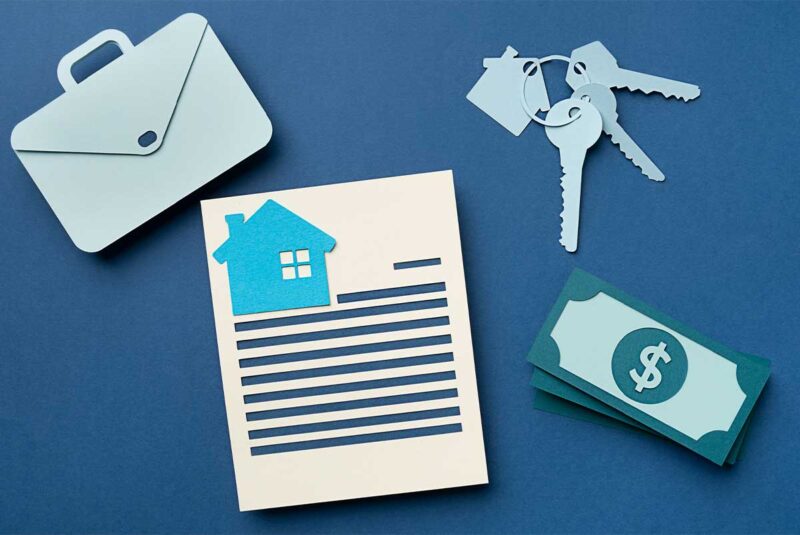Ready To Buy a Home?
Get Approved to Buy a Home
Rocket Mortgage® lets you get to house hunting sooner.
The federal government is a big fan of homeownership. And there’s a federal tax credit out there that makes owning a home more affordable. It’s called the mortgage credit certificate (MCC).
MCC is a home buyer assistance program that gives qualifying first-time home buyers with low-to-moderate incomes a dollar-for-dollar tax credit that covers up to $2,000 of mortgage interest paid on a home every year.
Mmm-hmm, you read that right. A dollar-for-dollar tax credit in addition to an itemized mortgage interest tax deduction on your tax return (which covers the interest not included in the MCC tax credit).
The mortgage credit certificate could put extra dollars in your pocket, bank accounts or retirement investments. We can walk you through the details of this mortgage credit. And we’ll show you how to apply for it.
How a Mortgage Credit Certificate Works
If you are an aspiring first-time home buyer, pay attention. The mortgage credit certificate is a federal home buyer assistance program aimed at helping low-to-moderate income first-time home buyers. The maximum tax credit you can get is $2,000. How much you get will depend on factors like the size of your mortgage loan and its interest rate.
While mortgage lenders issue mortgage credit certificates, the MCC program is run by state and local housing finance agencies (HFAs). Each HFA sets its mortgage credit certificate percentage. The MCC percentage varies by state, but it’s usually between 10% and 50%.
Here’s how you would calculate your mortgage credit certificate amount[1]:
MCC = home loan amount X mortgage interest rate X MCC percentage
So, let’s say you have a home loan for $300,000 with a 3.5% interest rate. You apply for an MCC and your percentage for your area is 20%.
300,000 X .03 X .20 = 1,800
Your MCC would give you a tax credit of $1,800, which means if you owe money toward federal taxes you could reduce the total amount you owe in federal taxes by $1,800 or even increase your total tax refund.
[MoneyFact]
If you have a low credit score, rejoice! You don’t need to provide a credit score to apply for an MCC.
[MoneyFact]
Who Qualifies for the Credit
Here are some of the general eligibility requirements for the MCC program:
- First-time home buyer: You must meet your state’s definition of a first-time home buyer. The definition can vary from state to state. For example, in most states, if you haven’t owned a home in the last 3 years, you qualify as a first-time home buyer.
- Household income: There are household income qualifications. The limits vary by state but are usually based on the area’s median income.
- Purchase price: The MCC program has property purchase price limits that are usually set by regional averages.
Many aspiring home buyers have benefited from this program. According to the National Council of State Housing Agencies (NCSHA), of all the home buyers who received an MCC in 2019[1]:
- 70% earned a median income or lower
- 35% were from communities of color
- 33% were female heads of household
How You Can Get It
You apply for a mortgage credit certificate after your purchase offer is accepted, and you’re applying for a mortgage.
Timing is crucial. You need final approval on the MCC before you close on the mortgage. An MCC is only valid for 90 days. You have to close on the home and finalize the mortgage within that time frame. If you miss the 90-day deadline, you can reapply.
Here are the steps to getting a mortgage credit certificate:
- Be a qualified first-time home buyer: Check your state’s definition of a first-time home buyer.
- Apply before closing: Work with your mortgage lender on the best time to apply so they can confirm they’ll be able to close within 90 days of your approval.
- Meet income requirements: Check your state or regional guidelines for income requirements. For example, in 2022, San Francisco allows one- and two-person income households to earn up to $155,464.(2)
- Purchase price requirements: Check your state or regional guidelines for purchase price requirements.
- Location: There may be communities in your state or region where your local government offers added incentives to encourage property buying. Under the MCC, properties in those communities get more leeway with income earnings and purchase price.
- File your tax document each year: You must file IRS Form 8396 with your taxes every year to claim your MCC.
What Are the Pros of an MCC?
Some of the benefits of a mortgage credit certificate are:
- Makes homeownership more accessible: The goal of this program is to make homeownership more accessible for first-time and lower-to-moderate income home buyers.
- Offers tax savings: An annual tax credit of up to $2,000 can help offset the cost of buying a home. In some cases, it can even help a buyer secure their mortgage approval by reducing the amount of taxes they would have had to pay otherwise.
- Most loans work with this program: An MCC is offered by a lot of lenders, and can be used with different types of loans, including government-backed loans and conventional mortgages, but ask your lender if they’re a participating lender in the program.
What Are the Drawbacks to the MCC Program?
There are some potential downsides to the MCC, including:
- Upfront fee: Getting an MCC isn’t free. Depending on your location, your lender and your state may charge a fee. But most states cap this fee. Typically, the fee is non-refundable.
- Recapture tax: It’s rare to owe recapture tax, but it is possible. All three of the following criteria must be met: (1) there is a gain from the sale of the property,[2] the owner’s income increased dramatically and (3) the house is sold within 9 years of buying it. If all of these happen, the IRS will tell you to pay back some or all of the MCC with recapture tax.
- Refinancing problems: You may lose your MCC if you refinance your home.
The Mortgage Credit Certificate Can Be the Final Step to Homeownership
The monthly credit certificate is a bonus to aspiring home buyers who need some financial assistance to bridge the money gap and achieve their goals of homeownership. If you think you qualify, take advantage of this program.
Get approved to buy a home.
Rocket Mortgage® lets you get to house hunting sooner.
The Short Version
- The mortgage credit certificate (MCC) is usually reserved for first-time home buyers with low-to-moderate incomes. It’s a federal tax credit that reduces what they owe in taxes
- Watch out for recapture tax! If you sell your home within nine years of buying it, make a profit from selling it and experience a big jump in income, you'll have to pay the tax
- If you refinance your mortgage loan, you’ll have to apply for a reissued MCC
National Council of State Housing Agencies. “Mortgage Credit Certificate Program Q&A.” Retrieved January 2022 from https://www.ncsha.org/resource/mortgage-credit-certificate-program-qa/
City and County of San Fransisco Mayor’s Office of Housing and Community Development. “Mortgage Credit Certificate (MCC).” Retrieved January 2022 from https://sfmohcd.org/mortgage-credit-certificate




